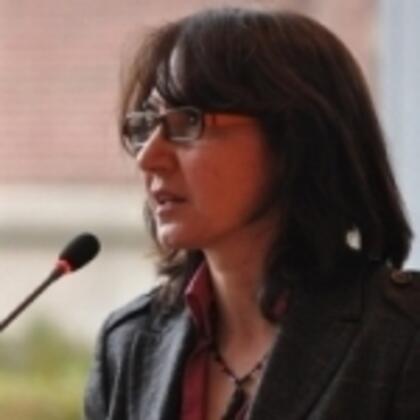
Shokoufeh Sakhi
Shokoufeh Sakhi is a former prisoner of conscience who suffered imprisonment for eight years under the regime of the Ayatollahs in Iran during the 1980s. She testified as a part of the Iran Tribunal and is currently a PhD candidate in Canada.
Shokoufeh Sakhi was in high school during the Islamic Revolution of 1979 and she joined the student dissident movement a few years later. In July 1982 she was detained for supporting the Marxist-Leninist Razmandegan Organization and was transferred to the custody of the court Unity Committee where she was interrogated, put on trial, and handed a 5-year sentence. In November of that year she was first transferred to Evin prison followed by another transfer to Ghezel Hezar prison. In April 1983 she was transferred along with 100 other female prisoners to solitary confinement referred to as “Haj Davood coffins” where she was kept for 8.5 months. In Ghezel Hezar, inmates were confined to solitary cells that were the equivalent of grave like chambers.
In 1984 Shokoufeh Sakhi was transferred with the group of prisoners to Ward 7 in Evin prison and the following year she was transferred to Gohardasht prison. In 1987 when the sentence for Shokoufeh Sakhi was over, instead of being granted release, she and 2 other prisoners were transferred to solitary confinement in Evin prison while awaiting yet another court hearing called Freedom Court. After the hearing that was presided by Judge Mobasheri, the court declared that Sakhi was not reformed and in order to be released, she must make a public televised confession. Sakhi refused to accept this stipulation and the court dictated that she would receive an additional prison term unless she repents. Due to Sakhi’s rejection of the court’s condition for her release (conducting an interview and writing a letter of repent), her prison term was increased to 8 years.
In 1990 Shokoufeh Sakhi was granted furlough along with a number of other prisoners. She escaped to Canada with her 11-year old son where she was granted political asylum. Sakhi is currently a Political Science PhD. candidate at York University in Canada and she does research work centered on political resistance. Her research is centered on the possibility of a political resistance that does not devolve into that which it resists, addressing the problem of the increasing reduction of the late modern subject into a being directed toward personal material survival and the corresponding loss of capacity to effectively resist the totalising system of capitalist modernity, comprehended as a tendency to produce those ‘individuals’ as pliable elements not merely of but also for that system.


 Login
Login
